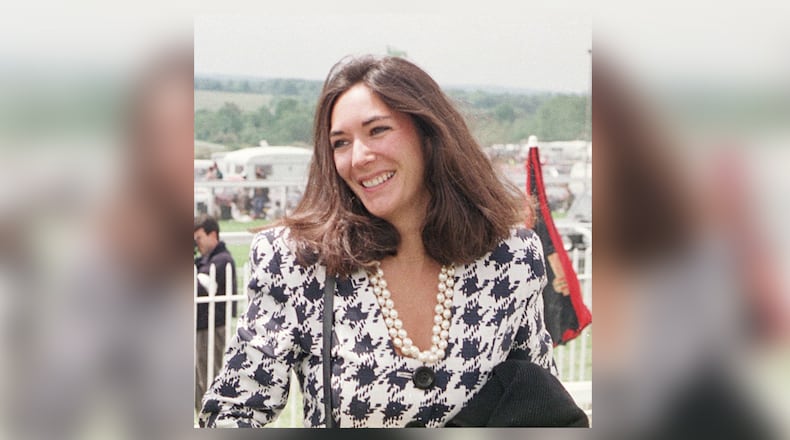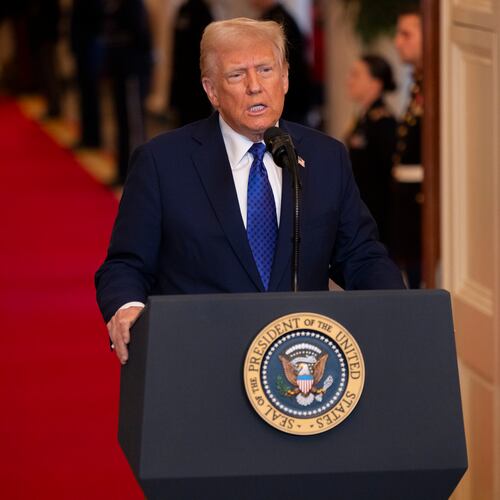WASHINGTON — A federal appeals court dealt Ghislaine Maxwell, the alleged madam to disgraced financier Jeffrey Epstein, twin blows late Monday afternoon by declining to consolidate her appeals in numerous overlapping cases and striking down her effort to thwart release of a controversial deposition she gave in a now-settled civil lawsuit.
The three-judge Court of Appeals for the 2nd Circuit held more than two hours of oral arguments last week and issued a succinct Monday afternoon order holding that a lower court judge did not err in ordering the release of a 418-page deposition from April 2016 that could shed new light on the Epstein empire.
“We have reviewed all of the arguments raised by Defendant-Appellant Maxwell on appeal and find them to be without merit,” the judges wrote, also turning away a request for consolidation with Maxwell’s criminal case in the Southern District of New York. “We DENY the motion to consolidate this appeal with the pending appeal in United States v. Maxwell.”
The ruling affirmed a decision over the summer by U.S. District Judge Loretta Preska to release hundreds of documents from a 2015 civil suit involving Maxwell and Epstein accuser Virginia Roberts Giuffre. The case was settled in 2017 and the Miami Herald sued for the release of the documents following its groundbreaking November 2018 “Perversion of Justice” series, which spotlighted how Epstein escaped serious punishment despite widespread accusations that he sexually abused underage girls. Epstein was arrested in July 2019 and found dead in a jail cell the following month in what was determined to be a suicide.
David Boies, the high-profile attorney representing Giuffre, welcomed the appellate decision.
“It is an important step towards vindicating the public interest in understanding the scope and scale of Jeffrey Epstein’s sex trafficking ring and the efforts made to conceal it,” Boies said in an emailed statement.
Giuffre has said she was recruited by Maxwell at President Donald Trump’s Mar-a-Lago club in 2000 where Giuffre, who was about 17 at the time, was working as a spa assistant. She has said she was abused by Epstein and that Epstein and Maxwell directed her to have sex with a number of their prominent friends, including Prince Andrew, former Sen. George Mitchell, former New Mexico Gov. Bill Richardson, hotel magnate Tom Pritzker and prominent attorney Alan Dershowitz, among others. All of the men have denied the claims, and Dershowitz and Giuffre have each sued each other for defamation.
Dershowitz said he welcomed the ruling Monday and hopes that all the material from the suit will be unsealed, which he says will prove that he did not have sex with Giuffre.
“I want every bit of evidence made public because I have nothing to hide,” he said.
Preska in July ruled in favor of the Herald, arguing there was an overwhelming presumption of the public’s right to access Maxwell’s deposition. Maxwell, who was arrested July 2 and denied bail, argued that the deposition would jeopardize her ability to get a fair trial. Maxwell was charged with four counts of sexual trafficking of a minor for allegedly recruiting and grooming three girls Epstein sexually abused, allegedly partaking in the abuse of one of the girls, and two counts of perjury for statements she made in the April 2016 deposition. She has appealed another judge’s ruling that blocked her from sharing what she said was new material from her federal criminal case to be considered by Preska.
Monday’s ruling by the three-judge panel concluded that Preska had not erred in her decision, noting that “the District Court correctly held that the deposition materials are judicial documents to which the presumption of public access attaches, and did not abuse its discretion in rejecting Maxwell’s meritless arguments that her interests superseded the presumption of access.”
At the hearing, the three appeals court judges seemed to be divided whether to uphold Preska’s decision, with U.S. Circuit Judge Rosemary Pooler peppering lawyers for Giuffre and the Herald with questions about the merit of their claims. At one point, Pooler said, “Ms. Maxwell may be a victim herself.”
There is no determined timetable for when Preska will release the much-anticipated lengthy transcript of Maxwell’s 2016 deposition. The judge has already released many documents from the civil case and is weighing requests by two so-called John Does that their names be redacted from any document subsequently released because of the reputational harm it could cause them.
Spencer Kuvin, a lawyer who has represented several of Epstein’s alleged victims, welcomed the ruling Monday.
“This is good news for not just the victims of Epstein, but for victims everywhere,” he said in a statement. “The Courts should not be a party to the long history of Epstein and his co-conspirator’s attempts to avoid public scrutiny for their actions. Everyone who was a part of the Epstein sex ring should be concerned.”
The Maxwell deposition is sure to be of interest in other proceedings, too. The attorney general of the U.S. Virgin Islands has brought a civil racketeering action against the Epstein estate, alleging it is an ongoing criminal enterprise. Epstein’s estate is being settled there under terms of his will, which was modified just days before his death and named his longtime lawyer and accountant — Darren Indyke and Richard Kahn — as co-executors of the estate.
Maxwell is suing the estate in the Virgin Islands, claiming Epstein had verbally agreed to pay her legal bills and was doing so up until the time of his death. Representatives of the estate have said there is no such agreement and are refusing to pay her bills.
The estate is also trying to sell off his properties and assets in order to pay into a victims compensation fund that began operating over the summer and gives victims a chance to seek redress without the public glare of the court system.
About the Author
Keep Reading
The Latest
Featured

